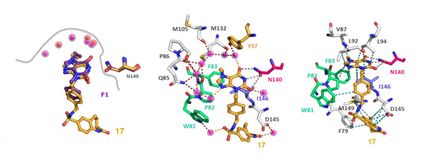Bionomics' BNC210 Clinical Trial Results Confirm Safety and Indicate Reduced Stress Hormone Levels
BNC210 reduced blood levels of stress hormone in trial subjects, indicating anxiolytic activity
Advertisement
Bionomics Limited announced the final results of its Phase Ia clinical trial of BNC210. dosing of healthy male volunteers in stage 2 of the Phase Ia trial, which was conducted at the pain and anaesthesia Research Clinic (PARC) within the Royal Adelaide Hospital, was completed on schedule at the end of last year.
The primary objectives of the trial, to evaluate the safety, tolerability and the pharmacokinetics of BNC210 were met when stage 1 trial results were reported on 27 October 2009. Stage 1 of the trial evaluated a dose range of 5mg to 1200mg. Evaluation of the safety and tolerability of BNC210 in stage 2 of the trial, in which subjects received either 2000mg of BNC210 or placebo, confirmed that BNC210 is safe and well tolerated at high dose levels.
In addition to safety and tolerability, stage 2 of the trial also involved an evaluation of blood cortisol levels. This evaluation showed that lower cortisol levels were observed in subjects receiving BNC210 compared to placebo. As anxiety and stress lead to an elevation of cortisol, the observed change following BNC210 administration is consistent with anxiolytic activity, and suggests that blood levels of this stress related hormone may be useful as a biomarker of BNC210 activity.
Stage 2 of the trial also enabled an extension of pharmacokinetic data which indicated that a plateau of absorption of BNC210 was observed at doses between 600mg and 1200mg.
The Principal Investigator on the trial Paul Rolan, Professor of Clinical Pharmacology at the University of Adelaide and a co-founder of PARC, commented "The first clinical testing of BNC210 in man has made important progress and under the conditions of this trial BNC210 has been shown to be safe and well tolerated. The most common reported side-effects which are possibly related to the drug were fatigue and headache, however these were quite mild”.






















































